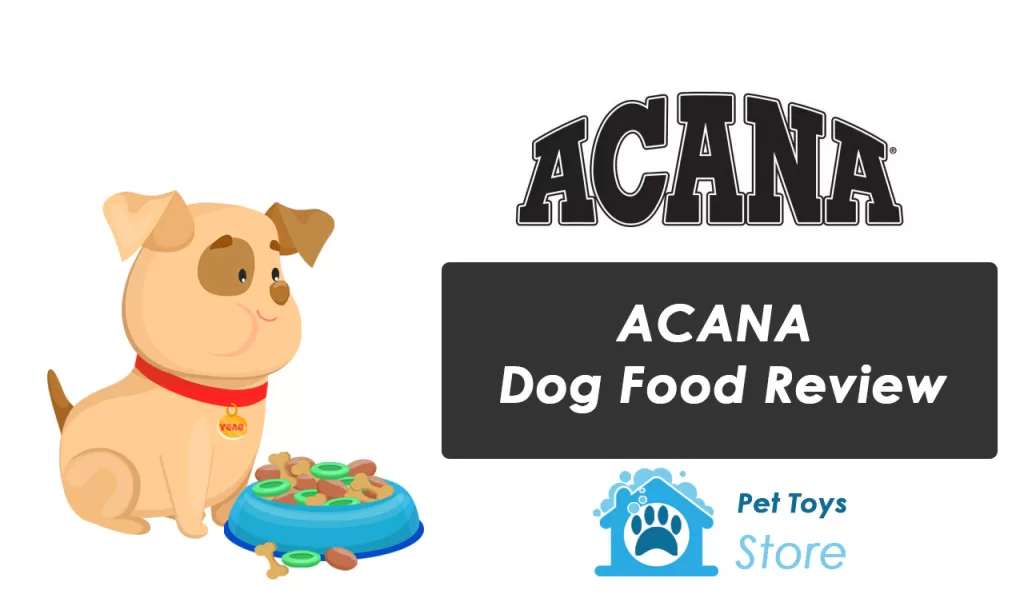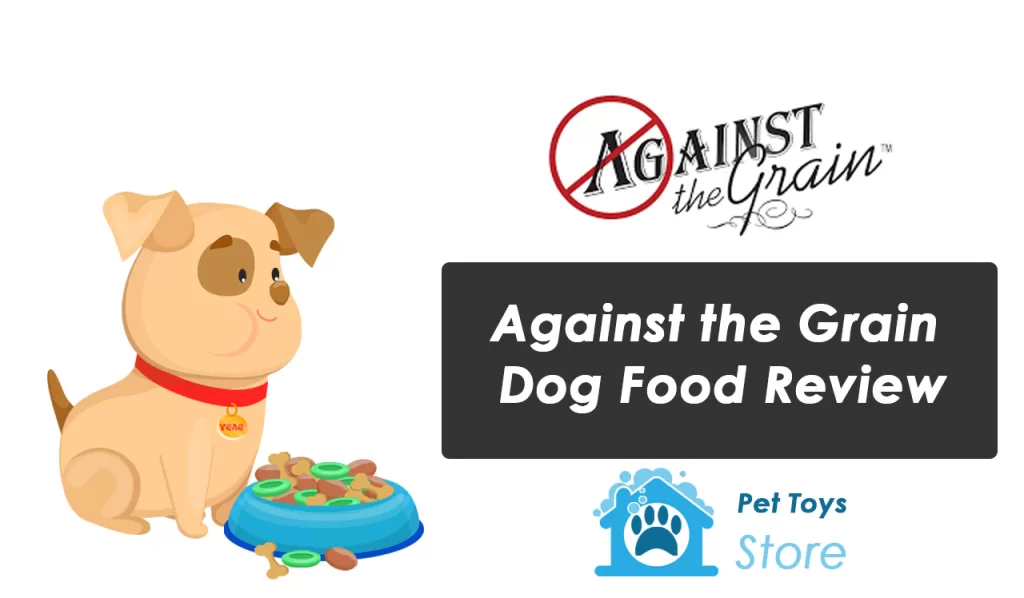As pet owners, we all want the best for our beloved furry companions. Just like us, dogs require a balanced and wholesome diet to ensure their overall well-being. One diet that has gained popularity in recent years is the Mediterranean diet for dogs. Inspired by the traditional eating habits of people living in the Mediterranean region, this diet is rich in nutrients and promotes a healthier lifestyle for our canine friends.
In this article, we will delve into the details of the Mediterranean diet for dogs, its benefits, potential drawbacks, and expert recommendations to help you make an informed decision for your furry friend’s dietary needs.
Mediterranean Diet Dog Food Review
[toc]
What is the Mediterranean Diet?
Origins and Principles
The Mediterranean diet is a dietary pattern inspired by the traditional eating habits of people living in countries bordering the Mediterranean Sea. It is known for its emphasis on fresh, whole foods, lean proteins, and healthy fats. This diet incorporates plenty of fruits, vegetables, legumes, nuts, and seeds while minimizing processed and red meat consumption. The Mediterranean diet for dogs follows similar principles, ensuring that our canine companions receive a balanced and nutritious meal.
Nutritional Benefits
The Mediterranean diet for dogs offers a myriad of nutritional benefits. Rich in essential vitamins, minerals, and antioxidants, this diet supports their overall health and boosts their immune system. The inclusion of omega-3 fatty acids from sources like fish and olive oil helps maintain healthy skin and a shiny coat. Additionally, the diet’s fiber content aids in digestion, promoting a healthier gut.
Recommended Ingredients
To provide a well-rounded Mediterranean diet for your dog, consider including the following ingredients:
- Lean proteins: Turkey, chicken, fish, and eggs.
- Fruits and vegetables: Blueberries, carrots, spinach, and sweet potatoes.
- Healthy fats: Olive oil and fish oil.
- Whole grains: Brown rice and quinoa.
- Legumes: Lentils and chickpeas.
Commercial vs. Homemade Food
While there are commercially available Mediterranean diet dog food options, some pet owners prefer preparing homemade meals. Both choices can be nutritionally beneficial; however, it’s crucial to ensure that homemade diets meet all of your dog’s dietary requirements. Always consult with a veterinarian or a veterinary nutritionist before opting for a homemade diet to avoid nutritional imbalances.
The Mediterranean Diet for Dogs
Age and Breed Considerations
The Mediterranean diet can be suitable for dogs of all ages and breeds, but individual dietary needs may vary. Puppies, for instance, require more frequent feedings and a different balance of nutrients to support their growth and development. Large breeds may benefit from diets with controlled caloric content to prevent joint issues associated with excess weight.
Weight Management
Obesity is a common issue among dogs, leading to various health problems. The Mediterranean diet’s focus on wholesome, nutrient-dense foods can help manage your dog’s weight by reducing the intake of empty calories and unhealthy fats.
Allergies and Dietary Restrictions
Some dogs may have allergies or dietary restrictions that need to be considered when implementing the Mediterranean diet. It is essential to identify any food sensitivities your dog may have and make appropriate substitutions in their diet to avoid adverse reactions.
Transitioning to the Mediterranean Diet
A sudden change in diet can upset a dog’s stomach. When transitioning to the Mediterranean diet, do it gradually by mixing the new food with their current food over several days. This process helps your dog adjust to the new diet and reduces the likelihood of digestive issues.
How the Mediterranean Diet Helps Dogs Stay Healthy
Enhanced Digestion
The abundance of fiber in the Mediterranean diet aids in digestion and promotes a healthy gut. Proper digestion is crucial for dogs as it ensures the absorption of essential nutrients from their food.
Improved Joint Health
The Mediterranean diet’s focus on lean proteins and omega-3 fatty acids can benefit joint health, reducing the risk of arthritis and other joint-related problems.
Increased Energy Levels
A balanced diet can provide the energy your dog needs to stay active and engaged in daily activities. The Mediterranean diet’s combination of protein, healthy fats, and complex carbohydrates can contribute to sustained energy levels.
Shinier Coat and Skin Health
The omega-3 fatty acids found in fish and olive oil can improve the condition of your dog’s coat and promote healthy skin. A shiny coat is not only aesthetically pleasing but also indicates good overall health.
Weight Maintenance
Weight management is crucial for your dog’s overall health and longevity. The Mediterranean diet’s emphasis on nutrient-dense foods can help your dog maintain a healthy weight and prevent obesity-related issues.
Selecting the Right Dog Food
Identifying High-Quality Brands
When choosing Mediterranean diet dog food, opt for reputable and well-established brands that prioritize quality and safety in their products. Look for brands that use natural and wholesome ingredients without unnecessary fillers and artificial additives.
Reading Dog Food Labels
Understanding dog food labels is essential in selecting the right product for your furry friend. Look for clear indications of the ingredients used and their nutritional value. Ensure that the product meets your dog’s specific dietary requirements.
Consulting with a Veterinarian
Your veterinarian is an invaluable resource when it comes to selecting the right diet for your dog. They can offer personalized recommendations based on your dog’s health, age, breed, and individual needs.
Potential Drawbacks
While the Mediterranean diet for dogs offers numerous benefits, it may not be suitable for every canine companion. It’s essential to be aware of the potential drawbacks before making the switch.
High-Calorie Content
The Mediterranean diet can be calorically dense, especially if not portioned correctly. Dogs that lead a sedentary lifestyle or have weight management issues may not thrive on this diet and could gain excess weight.
Allergies and Sensitivities
Certain ingredients commonly found in the Mediterranean diet, such as fish or grains, could trigger allergies or sensitivities in some dogs. It’s crucial to observe your dog for any adverse reactions and adjust the diet accordingly.
Cost and Availability
The Mediterranean diet’s focus on fresh, high-quality ingredients can lead to higher costs compared to conventional dog food. Additionally, some of the ingredients may not be readily available in certain regions, making it challenging to maintain the diet consistently.
Conclusion
The Mediterranean diet for dogs offers a nutritious and wholesome approach to canine nutrition, inspired by the traditional eating habits of people living in the Mediterranean region. It is rich in essential nutrients, supports overall health, and provides numerous benefits, including enhanced digestion, improved joint health, increased energy levels, shinier coat, and weight maintenance.
While this diet can be beneficial for many dogs, it’s essential to consider individual dietary needs and potential drawbacks before making the switch. Always consult with a veterinarian to ensure that the Mediterranean diet is the right choice for your furry friend.
Remember, a healthy diet is just one aspect of providing optimal care for your dog. Regular exercise, mental stimulation, and regular veterinary check-ups are equally important to ensure your four-legged companion leads a happy and healthy life.
FAQs
Is the Mediterranean Diet Suitable for All Dogs?
The Mediterranean diet can be suitable for most dogs, but individual dietary needs may vary. It’s essential to consider factors such as age, breed, size, and health conditions when deciding on the best diet for your furry friend. Always consult with a veterinarian before making any significant changes to your dog’s diet.
Can Puppies Eat Mediterranean Diet Dog Food?
Yes, puppies can eat a Mediterranean diet, but their nutritional requirements differ from adult dogs. Puppies need more frequent feedings and a balanced mix of nutrients to support their growth and development. Always choose puppy-specific formulas or consult with a veterinarian for appropriate dietary recommendations.
How Long Does It Take to See Results?
The time it takes to see noticeable results on the Mediterranean diet will vary depending on your dog’s individual needs and health condition. Some dogs may show improvements in a few weeks, while others may take longer. Be patient and consistent with the diet to give your furry friend ample time to adapt.
Are There Any Risks Associated with the Diet?
While the Mediterranean diet is generally considered safe and nutritious, there are some risks to be aware of. Dogs with specific food allergies or sensitivities may experience adverse reactions to certain ingredients. Additionally, if not portioned properly, some dogs may gain weight due to the diet’s calorie density.
Can Senior Dogs Benefit from the Diet?
Yes, senior dogs can benefit from the Mediterranean diet, especially if they require additional support for joint health and overall vitality. However, it’s essential to adjust the diet to meet their changing nutritional needs and consult with a veterinarian for personalized recommendations.
Can I Supplement the Mediterranean Diet?
Supplements should only be added to your dog’s diet under the guidance of a veterinarian. While the Mediterranean diet is rich in nutrients, some dogs may require additional supplements based on their specific health conditions or deficiencies.
Brand Overview
Mediterranean Diet is brought to you by Biologia y Nutricion 2 USA. Virgin olive oil is the top ingredient in the Mediterranean Diet. This oil holds amazing health benefits for pets and have designed a pet food using this oil. Mediterranean Diet food is created with the highest quality vegetables and proteins combined with virgin olive oil so that your pet will be able to eat a wholesome and balanced meal.
How Much Does Mediterranean Diet Dog Food Cost
We’ve compared Mediterranean Diet dog food price to the other 197 dog food brands in our database.
Mediterranean Diet Dry Dog Food Price Comparison
| Brand Avg | Market Avg | % From the Avg | |
|---|---|---|---|
| Price per lb | $7.62 | $3.63 | +110% |
| Price per 100 kcal | $0.36 | $0.23 | +60% |
| Price per day | $0.22 | $0.14 | +57% |
Mediterranean Diet Dry Dog Food is priced above the average market price for dog food.
Mediterranean Diet Nutrient Profile Comparison
We’ve compared Mediterranean Diet dog food recipes nutrient profile to the other 197 dog food brands in our database.
Dry Dog Food
| Brand Avg | Market Avg | % From the Avg | |
|---|---|---|---|
| DM Protein | 28.89% | 30.03% | -4% |
| DM Fat | 17.78% | 16.01% | +11% |
| DM Fiber | 3.89% | 5.37% | -28% |
| DM Carb | 49.44% | 47.69% | +4% |
All of Mediterranean Diet dog food recipes meets AAFCO’s minimum requirements.
Recall History
The following list (if present) shows all dog food recalls related to Mediterranean Diet Dog Food Review since 2011. If no recalls are listed, no recall events have been reported.
Since 2011 Mediterranean Diet has never been recalled.





